If more of us voted regularly, it would be tougher for politicians of both major parties to listen primarily to people on the fringes.
That’s one reason why we should encourage more voting. And in the upcoming election, it’s critical people believe they can cast their ballots safely.
New steps are underway to do that, but it’s clear many Illinoisans believe encouraging voting by mail is going to result in massive cheating, despite the fact that several states have used it for years and evidence of fraud is rare.
The fact is, we know at least four Chicago polling places in March were staffed by people who later tested positive for the coronavirus. The fact is, several states now are seeing a significant uptick in virus cases after loosening lockdown restrictions.
Those are added reasons why we need to ensure that every eligible voter can cast a ballot safely. Two measures Gov. J.B. Pritzker signed into law will expand voting options for the November general election.
Local election officials now are required to send applications for voting by mail to every Illinoisan who cast a ballot in an election since the 2018 general election. That’s about 5 million people, who then will need to apply. If you’re a new voter or are updating your registration, you now should be told about applying to vote by mail.
If you don’t fit into those categories, ask your local election administrator or the state board of elections. To register to vote online, go here.
What has been less publicized is that the new laws also expand early, in-person voting hours, permit local officials to create curbside voting if they choose, allow them to try lockbox ballot drop-off sites and lower the age for trained election judges to 16 years old from 17. Younger judges will be less susceptible to the virus.
Fifteen days before the Nov. 3 election, early voting sites are to be open from 8:30 a.m. to 7 p.m. weekdays and from 9 a.m. to 5 p.m. on weekends and holidays. Local election administrators also can set special earlier voting hours for people at greater health risk.
These provisions apply only to the November election, and how it all goes is something that should be evaluated afterward. Election officials have a lot to do in a short time, but it’s essential they do all they can to succeed so we don’t experience a repeat of the voter suppression and disenfranchisement we saw in states like Wisconsin and Georgia.
Because many people don’t trust voting by mail or might not use mail services, in-person voting still must be made available and public health standards met to try to ensure voters’ health is preserved. It is vital, too, that local election authorities don’t arbitrarily shut down polling locations without proper community input. As these new laws are executed, it’s essential that election officials provide applications and ballots and communication about voting in the multiple languages legally required for voters for whom English is a second language. And it’s important that arrangements are made for disabled people—for example, blind voters, for whom a mailed ballot won’t work well enough, as an Associated Press story examined.
Nov. 3 now will be a school holiday statewide. That is helpful because it frees up schools to be used as accessible polling places and frees up teachers to serve as poll workers.
Perhaps you’re not satisfied with how the pandemic has been handled? Maybe you’re disgusted with systemic racism after the killings of too many Black people? One way to turn outrage into action is to vote. An election that gives each of us the opportunity to feel secure casting our own ballots is the bedrock foundation of our democratic republic.
This column was originally published by Crain’s Chicago Business.
